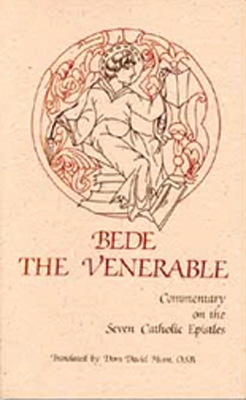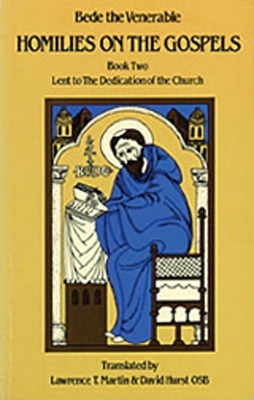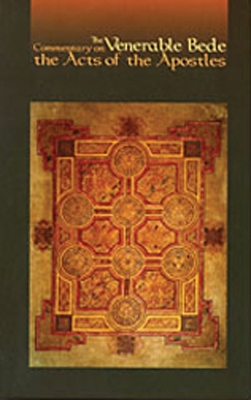Cistercian Studies
3 primary works • 5 total works
Book 82
Commentary on the Seven Catholic Epistles
by David Hurst, OSB, Lawrence T. Martin, and The Venerable Bede
Best known in the Middle Ages as a scriptural exegete, Bede here provides a running gloss on the Letters of James, Peter, John, and Jude. Why he chose these `lesser letters' for his first attempt at written exegesis no one knows; perhaps he did so because so few other scriptural commentators had glossed them. They are unique in that he inclined more to the literal interpretation of the text than he did in his more allegorical later commentaries. Preachers will find them useful; readers will find them illuminating.
Book 111
Homilies on the Gospels Book Two - Lent to the Dedication of the Church
by The Venerable Bede
'I have spent all my life in this monastery', wrote Bede from his isolated Northumbrian cell, 'applying myself entirely to the study of the Scriptures...I have made it my business, for my own benefit and that of my brothers, to make brief extracts from the works of the Venerable fathers on the holy Scripture, or to add notes of my own to clarify their sense and interpretation.'
From the eighth to the fifteenth centuries, Bede's authority as a scriptural exegete was second only to that of the Doctors of the Latin Church. His influence was enormous. Yet modern readers associate this remarkable scholar-monk only with his History of the English Church and Nation and ignore the works he saw as his chief accomplishment.
Book 117
In his monastery in a remote corner of Europe, the grandson of Anglo-Saxon pagans quietly spent his life studying and writing, passing the wisdom of christian antiquity on to generations of latin readers. And in the process, this most learned and the least proud of men came to be acknowledged as a Doctor of the Church.
Bede's commentary on the Book of Acts is one of his earliest exegetical works (usually dated between 709 and 710) and one of his most popular and influential. None of the Latin Fathers of the Church had written a commentary on this book, and those which existed in Greek were unlikely to have been known in the West. Bede became the authority on Acts for countless subsequent students of Scripture.
Excerpts from the Works of Saint Augustine on Letters of St. Paul the Apostle
by The Venerable Bede
No 110



